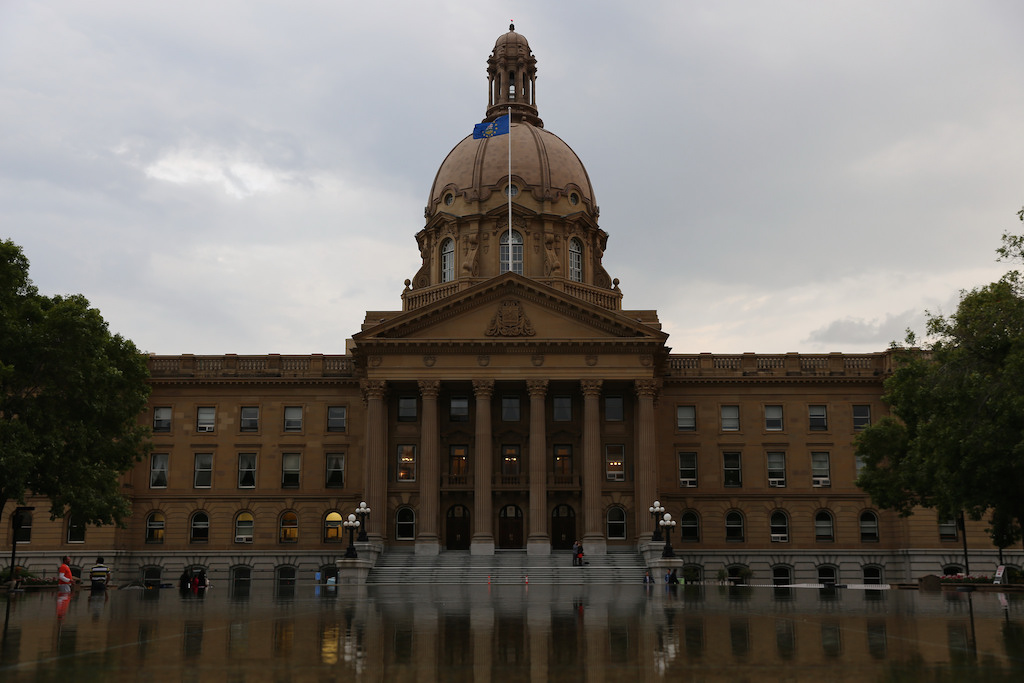It turns out the Wildrose and Progressive Conservative parties have a plan for ensuring their constituency associations get to hang onto their assets when they merge into the United Conservative Party, notwithstanding an Alberta law that says they can’t.
It’s breathtaking in both its simplicity and its arrogance. They’ll just change the law to suit themselves.
This isn’t unheard of in the annals of politics, of course, but it’s certainly brazen to just lay it out as the Wildrosers did yesterday in a memorandum to their constituency association boards, which was also sent to the party’s general membership.
The memorandum was apparently intended to reassure members who might be considering voting against the merger plan, although its eye popping chutzpah may shock some Albertans who aren’t party members.
Wildrose members have apparently been asking their party leaders what will happen to the money they donated to the constituency associations in their electoral districts if the two conservative parties “merge” by agreeing to form a new political entity, the UCP, as set out in their May 18 unification memorandum.
Their worry, sensibly enough, is that since party mergers are not actually allowed under Alberta’s Elections Finances and Contributions and Disclosure Act, it’s not clear what would happen to the money they donated to a party that was slated to cease to exist. Under the Act, if a registered provincial political party is dissolved, the funds are held in trust by Elections Alberta and eventually passed on to the government of Alberta’s general revenues.
Now, this part of Alberta’s legislation was drafted and passed when the PCs were still the government of Alberta, and it was generally assumed they would be forever. If a party were to be dissolved, it was understood, it wouldn’t be the Conservatives. It was also presumably accepted, quite rightly, that a donor to a political cause should have some reasonable certainty that his or her donation didn’t end up benefitting another political organization.
But that was then and this is now.
Accordingly, the Wildrose brain trust wrote its members, if the agreement in principle between the two parties is ratified on July 22 and then implemented, there are two “logical paths” that can be considered by Wildrose constituency associations, which are abbreviated as CAs in the memo.
The first, the memo says, is to “keep the CA’s assets and go dormant (other than monthly bank service charges).” A short discussion of the process for filing records follows, then …
“In 2019, the United Conservative Party (‘UCP’) would form the government and change the law to permit mergers of political parties,” the memo states. “At that time, the assets of the legacy Wildrose CA could be merged into the CA of the UCP in that constituency.”
Don’t worry! We’ll be automatically elected. And when we are, we’ll change the law to suit ourselves and to tilt the playing field in our direction. Easy-peasy!
My guess is that if a UCP government were elected, this formula would be applied to more than just this particular aspect of election financing. Indeed, Alberta would most likely say goodbye to the ban on corporate and union donations implemented by the NDP government of Premier Rachel Notley. This would certainly not be out of character with the self-interest, arrogance and entitlement evident in the Wildrose memo.
The other alternative, the memo goes on, would be to “transfer the CA’s assets to the Wildrose Party and de-register the Wildrose CA.”
“It is also possible that in time the UCP would be able to attain such financial strength that it could afford to transfer a like amount of cash to the UCP CA in that constituency,” this section of the memo says. “There could be no guarantee of that, however, given that the UCP will need all of its money for the next two years to prepare for and run a general election campaign.”
In fact, as the memorandum then indicates, the party has in mind using both stratagems, depending on which makes the most financial sense in the circumstances. “The first course above may be more suitable for Wildrose CAs with larger net assets; the second course may be more suitable for CAs with little or no assets.”
The memorandum closes by urging Wildrose Party members to ratify the agreement in principle with Jason Kenney’s PCs on July 22. Wildrose Leader Brian Jean’s name does not appear on the email. Instead, the memorandum is attributed to James Cole, the party’s treasurer, and Brandon Swertz, its fundraising VP. Both were Wildrose representatives on the parties’ unity discussion group.
One wonders what Revenue Canada, which administers this provincial tax break, will have to say about this. The deduction for political donations is designed not merely to support the democratic process in Canada, but to ensure that money donated by Canadians goes to political parties those donors wish to support.
Many contributors to the Wildrose and PC parties would not want to see their contributions go either to the other party, or a party dominated by members of another group with which they profoundly disagree. Many Canadians would argue that what is discussed in the Wildrose memo would be a serious misapplication of the federal government’s policy on political deductions. And — who knows? — Ottawa might have some kindly advice about that, being concerned with the rule of law and the like.
This post also appears on David Climenhaga’s blog, AlbertaPolitics.ca.
Photo: Mack Male/flickr
Like this article? Please chip in to keep stories like these coming.





